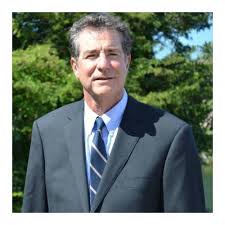BLACK: There are a whole variety of cancers, including brain tumors -- particularly pediatric brain tumors -- and even adult brain tumors -- that chemotherapy can benefit from.
Perhaps Dr. Black can tell us the benefit for Edward Kennedy who had the same dismal 12 month prognosis from his brain tumor as any one else. Where is the benefit there, Dr Black?
An Incredible Moment
Now we come to the most amazing part of the entire segment. Dr Burzynski is allowed to talk freely and explain his antineoplastins. This is something I never expected to see on national television in a million years, and credit is due to Suzanne Somers for making this happen.
KING to Burzynski: What -- what do you mean by this plastin study, what is that?
BURZYNSKI: Anti-neoplastins, peptides, which I discovered, which can stimulate genes which fight cancer, and which can decrease the activity of the genes which cause cancer. These are molecular switches --
KING: You publish that?
BURZYNSKI: Yes, we publish -- I publish about 300 articles --
KING asking Keith Black: Well, that seems revolutionary. Do you discount that?
Now Comes the Hatchet Job.
BLACK: Well, I -- I -- I looked at the chapter that Suzanne wrote in her book about Dr. Burzynski and I've -- I've known of what he's been doing. And I think -- you know -- the work that he's doing, there's no scientific evidence that it provides any benefit for cancer patients.
KING: You're discounting all the work?
SOMERS: Oh my gosh.
BLACK: Yes. He's treated over 8,000 patients with this treatment over 30 years. The papers that he has published have been too few papers -- too few patients in those articles to come to any scientific conclusion. And in -- in -- in studies that have been reviewed by other doctors of his work, when he selected the patients, they found no evidence of any response of cancer patients to -- to his--
SOMERS: Then why is he in Phase Two clinical trials? Why is he starting Phase three? I mean, to discount what Dr. Burzynski did, I think, is a great disservice to people listening also.
BLACK: Well, I mean, you know, the other thing, Larry, is that, you know, here are some abstracts that he wrote. And one of the patients that he describes as having a complete response to his treatment, it wasn't a response because the patient had the tumor removed with surgery. He also states that there was no complications or very little complications in his treatment. And I've actually had one patient that went to him and had the treatment and almost died -- went in a coma from the treatment.
(Note: You can view every article as one long page if you sign up as an Advocate Member, or higher).





